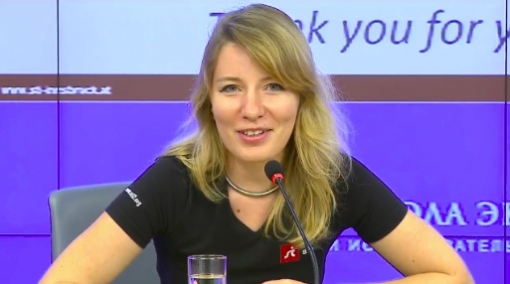
Photo Credits: RIA Novosti
Semantics Conference chair member Anna Fensel is Senior Assistant Professor, Head of Research Unit at STI Innsbruck, University of Innsbruck, Austria. She is an author of ca. 80 refereed publications in books, international journals, conference and workshop proceedings. Read about her industry background and how she draws inspiration from the satellite events which will accompany this year’s Semantics Conference in Vienna.
I am happy to have been one of the first people in the world to have completed a doctoral thesis in the area of Semantic Web. After this I have been working a lot in and with industry in sectors such as telecommunication, automation and energy efficiency, setting the Semantic Web vision into real life systems, particularly, ones beyond the Web.
So now I am also double happy that the Semantic Web research vision became a reality, as in the last years large companies have started to use semantic technologies in real-life settings.
My research slogan can be put as "making communication systems meaningful". And I think there is still a lot to be done in design and deployment of such systems, particularly w.r.t. smart data processing and advances in communication technologies.
I have seen and took part in many projects, and would rather not point at the "most promising" one.
Some looked very promising at the start, but found no immediate deployment. Some worked well in practice, but did not look fancy from the research standpoint. So, pointing the "most promising" one is complicated, and more time should go by, before we can really tell.
Also, currently ongoing semantic technology projects are running in a broad spectrum of topics and domains.
For example, at SEMANTiCS'15 Satellite Events, the topics range from societal impact of Smart Data, Data Economy & Data Science, to content and linked data processing, and to Internet of Things - all that in various application domains such as media, industry 4.0, agriculture, health, tourism, etc.
So, everyone can find the most promising project for him- or herself!
A few years ago - with Schema.org adoption by leading Web search engines, as well as the linked data appearance, and their further usage growth. And when publishing RDF became something normal (even governments do that!), and not exotic anymore.
It looked like: yes, we have made it!
I like tools that employ semantic technologies to fulfill real-life needs. An example of such tool is onlim Tell-it!, from our most recent start-up onlim: http://onlim.com. The tool facilitates marketing on social media and is basing on schema.org.